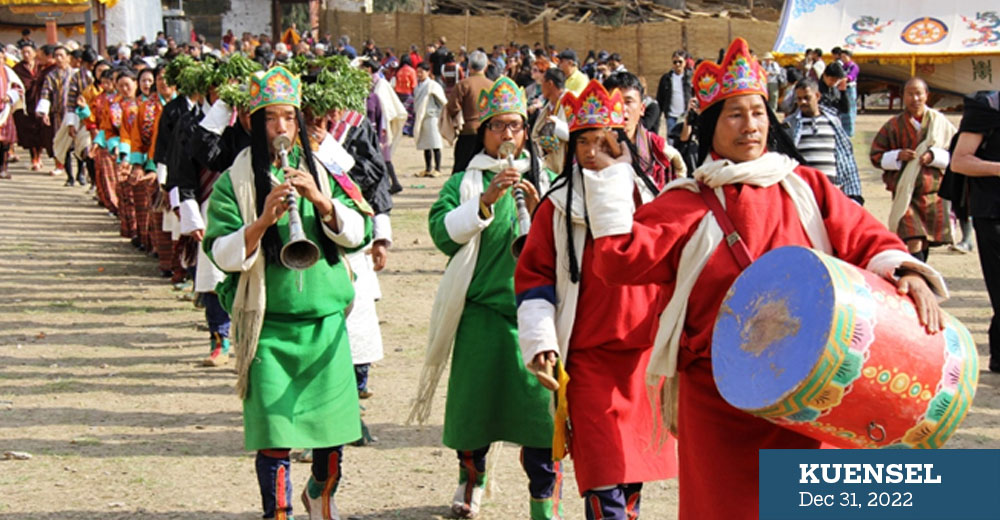KP Sharma
It is not a popular job, but quite often dzongkhag administrations float vacancies for Jali Phumi, Bangka and Tingti Dungmi. If the job is not attractive or made fun of because of the title, there are not many qualified or applying for the job that officials said is only for the skilled.
Dagana Dzongkhag Administration had to re-announce the vacancy for Jali Phumi after none applied for the job. Assistant Human Resource Officer (HRO), Jamyang Norbu said that they are still waiting for applicants to apply. So far nobody has applied. According to him, Jali Phumi and Bangka dhungmi are required mainly during the time of Chibdrel procession when highly revered lamas or dignitaries visit the dzongkhag and on other special occasions and Kurims.
The Bangka represents divinity in protocol. Tingti compliments the drum and represents all kinds of symbols. Jali ushers the guest with a spiritual welcome tune during the chibdrel procession.
Bumthang Dzongkhag announced a vacancy of one Jali Phumi last August. “It is difficult to get skilled individuals. The job is not as easy as what people think,” the HR officer, Tashi Tenzin, said. The dzongkhag trains people for the job if they do not get experienced people.
While the job is not as cool as that of drummer or one on the trumpet in a music band, it is popular among lay monks who reside near the dzong, which has the dzongkhag administration office. Dzongkhag HR officers agree that many shy away from taking up the job.
However, they said people are taking it for granted. It is, according to them, a critical post and not everybody can do it without experience or training. “People should not look down or mock at people who are doing such jobs as it discourages them,” said an HR officer.
Although these jobs may look more related to the monastic body, they do not fall under the Dzongkhag Rabdey. They are selected by the Dzongkhag Administration through open competition.
Jali phumey, banga and tingti dungmi are placed at General Support Personnel (GSP) level in the civil service and they are usually recruited on contract by the respective dzongkhags.


